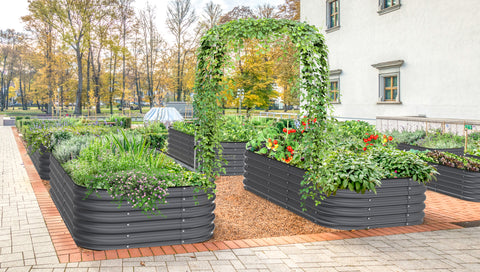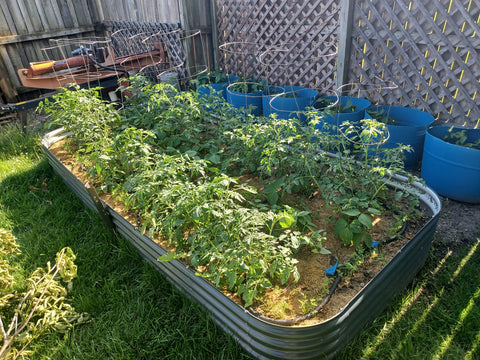How To Prevent Deer From Eating Tomatoes In The Garden Bed?
Deer are animals that love to eat tomatoes, and they often visit garden beds, causing a lot of trouble for gardeners. If you are also facing such a problem, here are some specific suggestions and methods to help you prevent deer from eating tomatoes in the garden bed.
Step 1: Choose deer-resistant tomato varieties
Firstly, we can choose some tomato varieties that deer don't like to eat. These varieties usually contain higher toxins or stronger flavors and are not favored by deer. For example, some small, prickly, sour varieties such as cherry tomatoes and grape tomatoes are good choices.
Step 2: Use deer's sense of smell to create barriers
Secondly, we can use deer's sense of smell to create barriers. Deer have a very sensitive sense of smell, and if we place some odors they don't like around the garden, we can effectively drive them away. For example, we can place soap, vinegar, chili powder, garlic, and other substances with stimulating odors in the garden or use specialized deer repellent sprays to spray on the grass around the garden to create barriers.
Step 3: Build deer-proof netting
We can also protect tomatoes by building deer-proof netting. Deer-proof netting can be made of wire mesh, plastic mesh, or other materials. It can surround the garden bed and prevent deer from getting close to the bed. If you have multiple beds, you can choose to connect them to form a larger fence for enhanced protection.
Step 4: Use sound to create alarms
Finally, we can use sound to create alarms that make deer feel scared and run away. For example, we can place devices with sound emitters around the garden that emit alarm sounds when deer approach. These sound emitters can use ultrasound or other high-frequency sound waves that make deer uncomfortable and force them to flee.
In conclusion, preventing deer from eating tomatoes in the garden bed requires taking multiple measures, including choosing deer-resistant tomato varieties, using deer's sense of smell to create barriers, building deer-proof netting, and using sound to create alarms. These measures can be used separately or in combination, depending on your situation. Regardless of which measures you choose, regular inspection of the garden bed is necessary to ensure the effectiveness of the protective measures. Only by carefully protecting tomatoes can we harvest delicious fruit.


